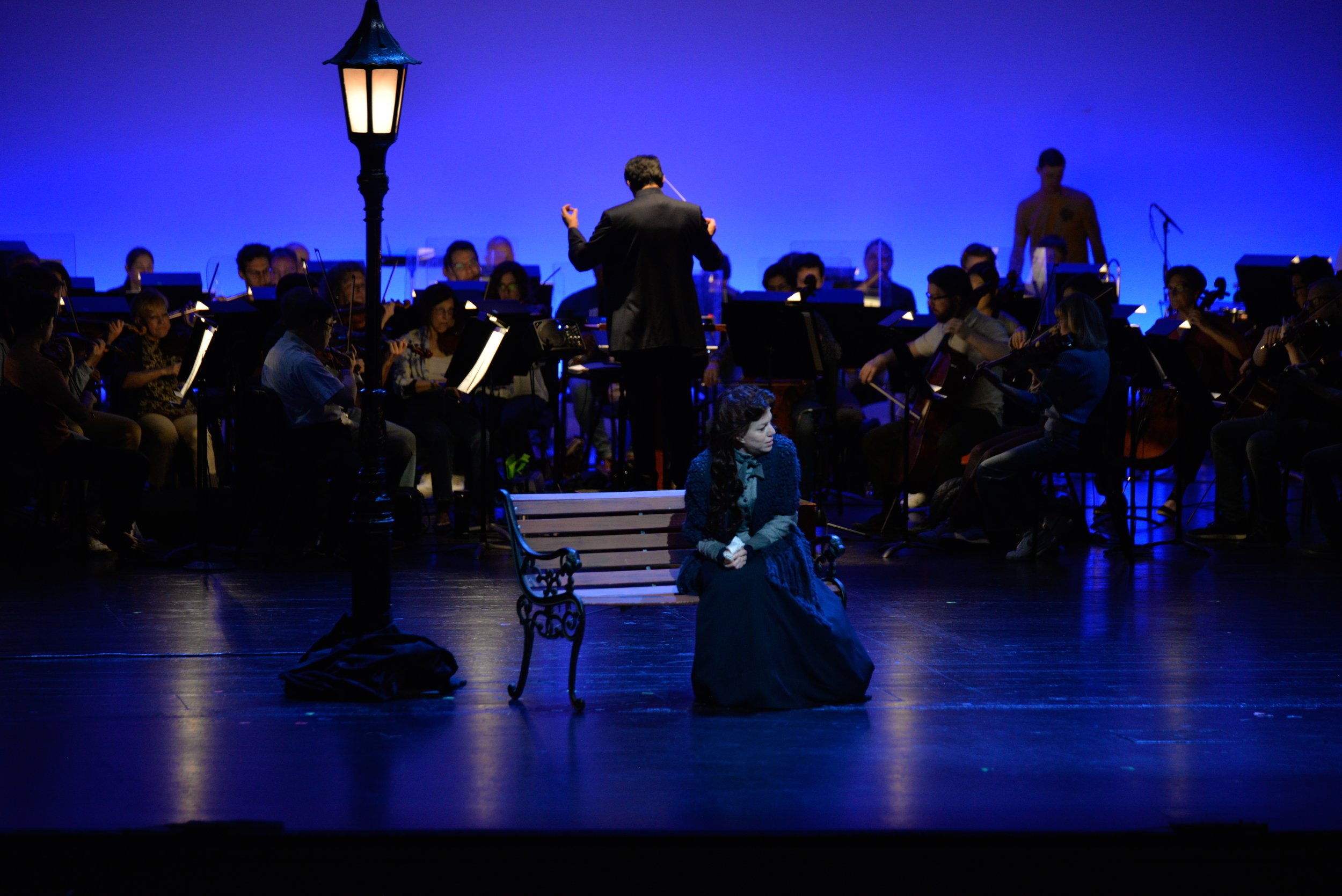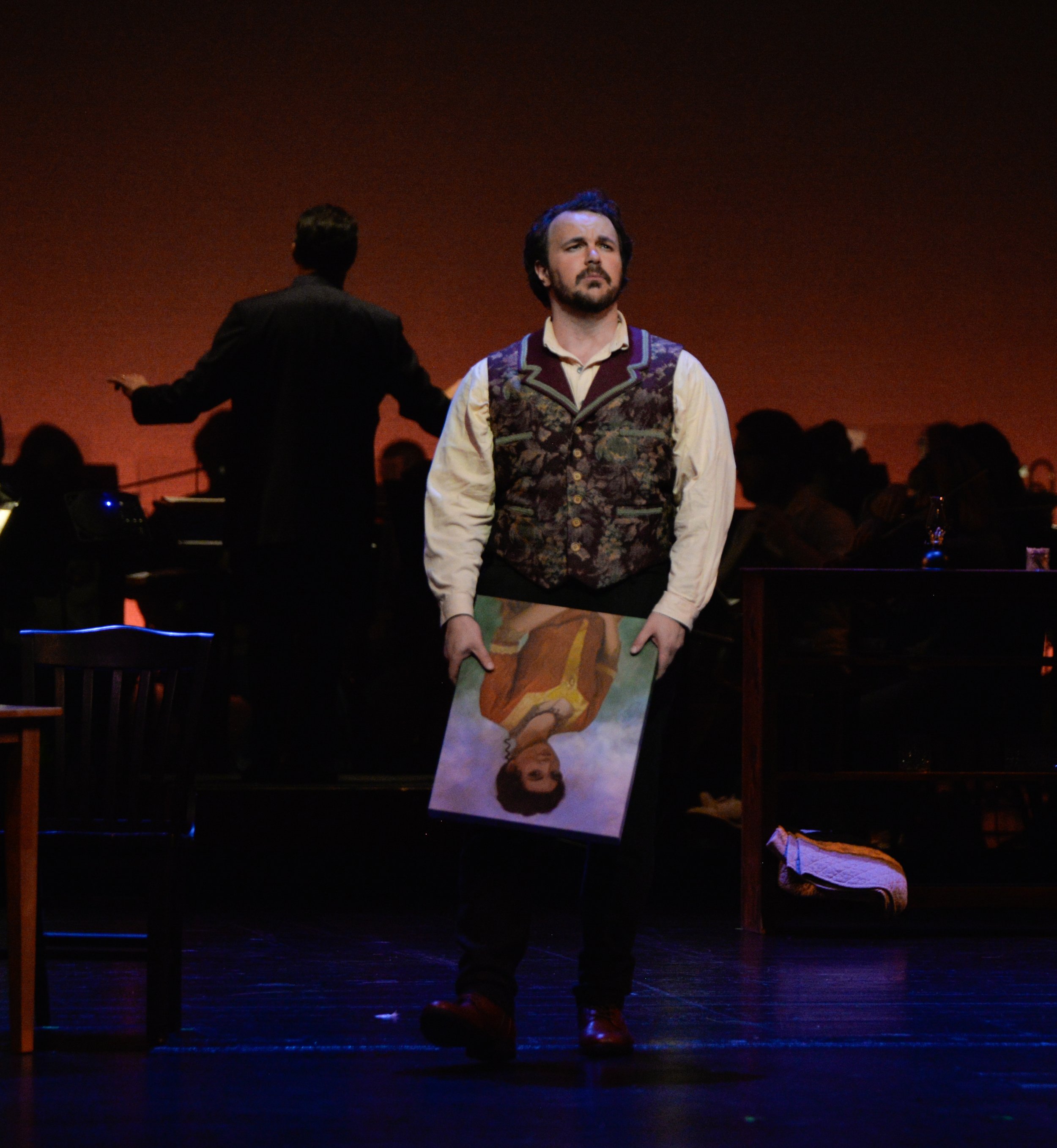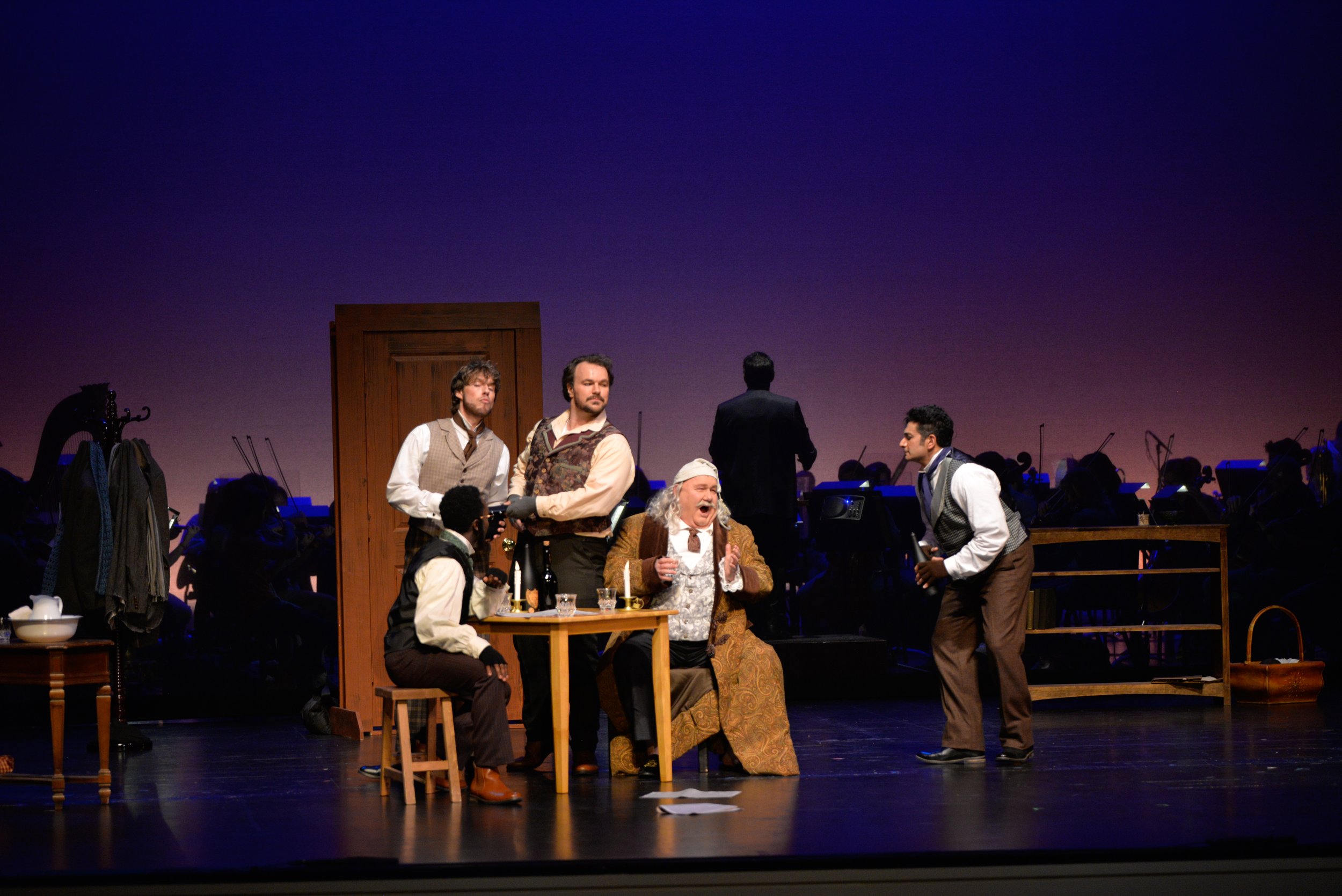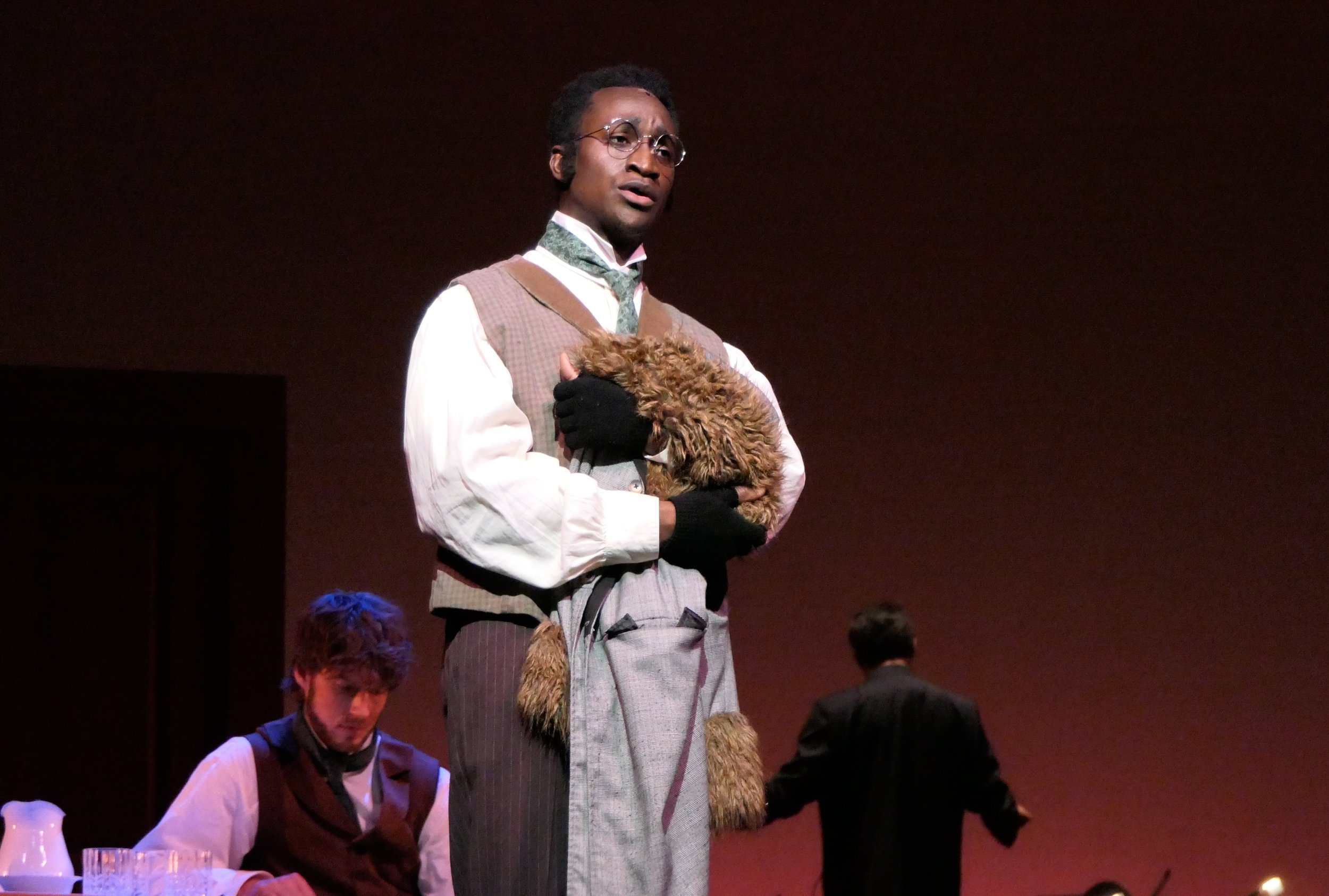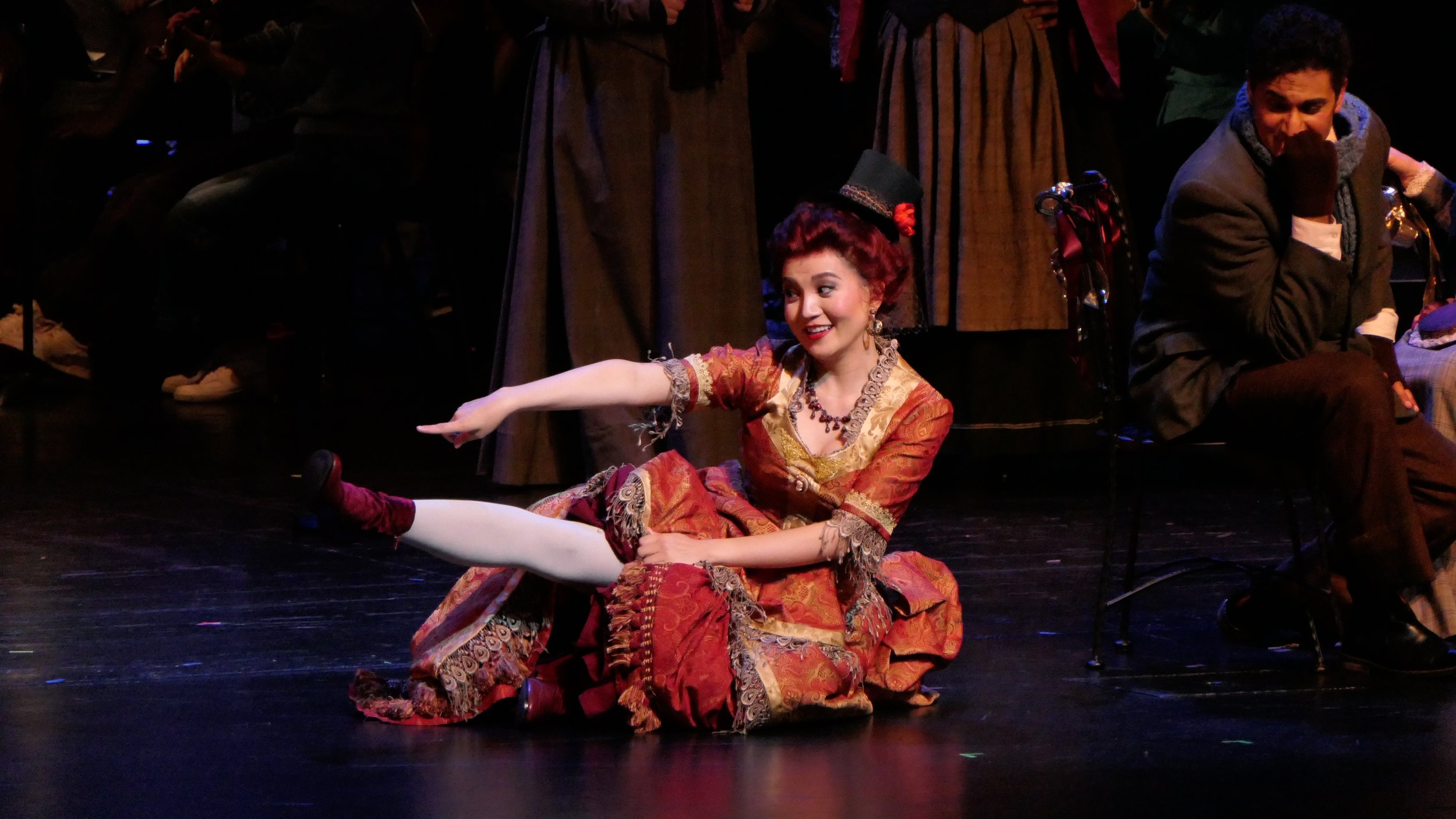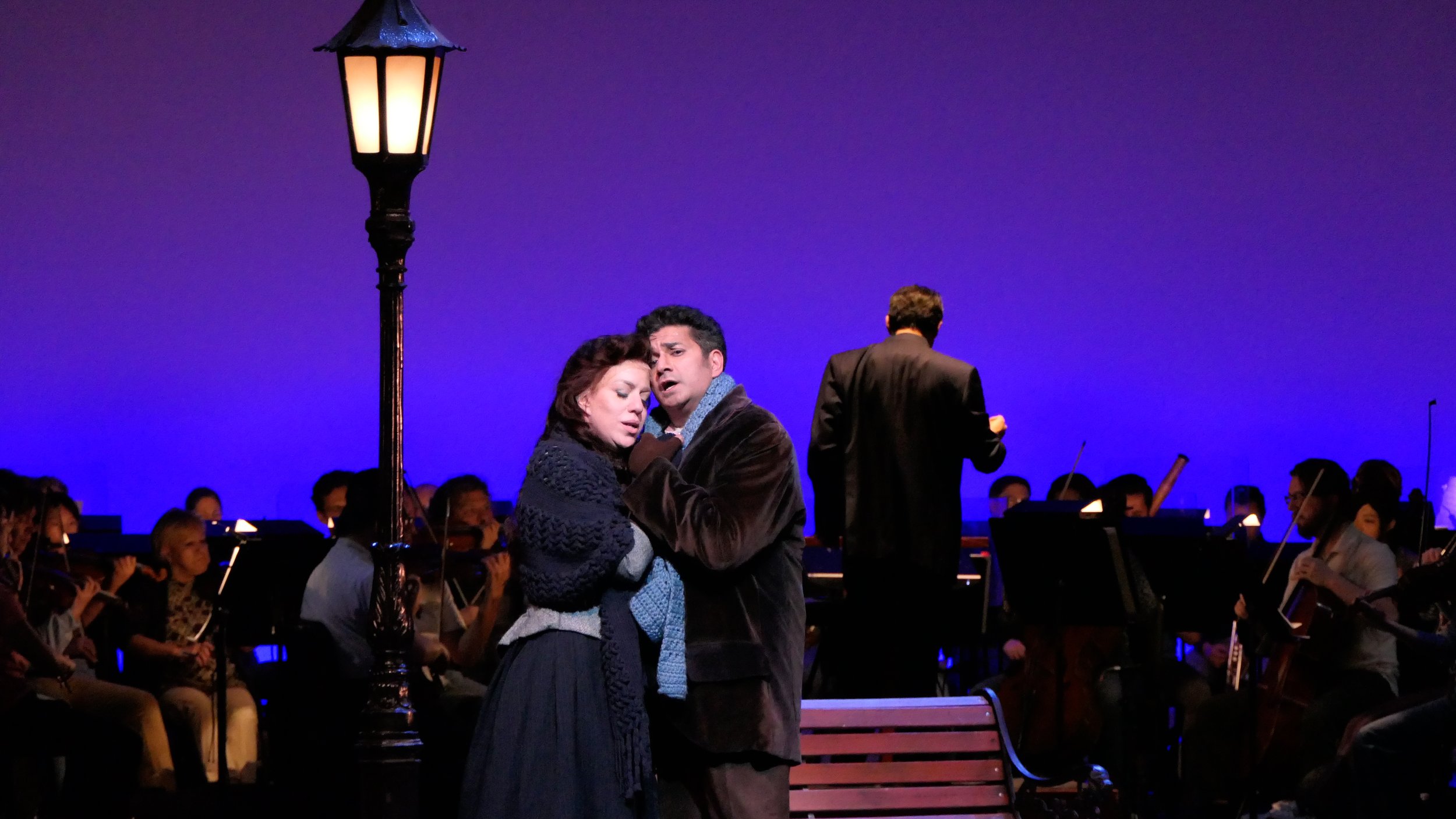Puccini’s ‘La Boheme’ @ Fort Worth Opera
Photos by Freddie Watkins
—Wayne Lee Gay
A familiar favorite takes on a different look this weekend at Bass Performance Hall as Fort Worth Opera presents a "semi-staged" production of Puccini's La Boheme.
"Semi-staged" can mean lots of different things; in this case, it indicates that the orchestra is onstage behind the singers and props are minimal. Here, the fully costumed singers move about on a generous portion of the stage (and with more vivid action than we've seen in some stodgier stagings, with overweight stars portraying Puccini's lively youngsters).
Indeed, given the familiarity of the plot to many opera fans (and the story’s clear-cut accessibility to novice opera fans), this pared-down version offers some distinct advantages. No danger here of opulent scenery over-powering the drama and music: Puccini's genius for drama and music comes to the fore with little distraction.
Tenor Alok Kumar gives us an energetic Rodolfo, albeit with a voice that stays entirely at forte; soprano Elizabeth Caballero pulls off the central role of Mimi with a gently lyrical quality. Baritone Daniel Scofield matches his portrayal of the combustible Marcello with appropriately warm singing, while bass-baritone Michael Colman and bass Kofi Hayford as Schaunard and Colline exude youthful energy along with impeccable vocal presence. Bass Kevin Glavin wins well-deserved applause, doubling as the comically rotund landlord Benoit and the hapless Alcindoro.
But it's soprano Meigui Zhang who produces the most outstanding performance of this production, with a beautifully sung, wonderfully seductive portrayal of the coquette Musetta. The role is written to steal the show in Act II, of course, and Zhang shines in the final moments as well.
Stage director Chuck Hudson, working within the limitations of "semi-staged," presents a lively, efficient version—so much so that we quickly forget it's not a fully staged traditional production. Kathleen Trott's costumes (originally designed for Arizona Opera) enhance each character convincingly, and the sets are appropriately minimal (though I wasn't ready for Mimi to end up in a chair rather than a bed). One other quibble: I'm probably the only person around who is bothered when the costumes say 1890s but the words—just once, and briefly—mention King Louis Phillippe, deposed in 1848. Just sayin'.
The Fort Worth Symphony Orchestra and conductor Miguel Harth-Bedoya do their part to build a wonderful momentum from their position onstage behind the singers; a full, permanent orchestra of this quality is a real asset to operatic performances. In this case, the balance of singers and orchestra is perfect.
Harth-Bedoya, who served as the FWSO’s music director for two decades (2000-2020), will return to Fort Worth again on April 23 to conduct the Baylor University Orchestra at Bass Performance Hall, and on May 20 to conduct a chamber orchestra performance by Fort Worth's Spectrum Chamber Music Society. He'll make his Metropolitan Opera debut in New York on October 15 to conduct Golijov's Anidamar.
WHEN: April 5, repeated Sunday, April 7, 2024
WHERE: Bass Performance Hall, Fort Worth
WEB: fwopera.org
